In a time when more and more Americans are turning to plants to support their health, herbalism can feel like a trendy new phenomenon. The truth is, it has a long and rich history in North America, with traditions gathered from many sources. Read on to explore this almost-lost history of herbalism in the US.
Who Were the Eclectic Herbalists?
Eclecticism was one of many medical philosophies that co-existed in the late 1800s and early 1900s. It set itself apart from allopathy, homeopathy, hydrotherapy, osteopathy, and others with its focus on using whatever remedy would be least invasive and still effective – “eclectic” comes from the Greek eklego, “to choose from.”
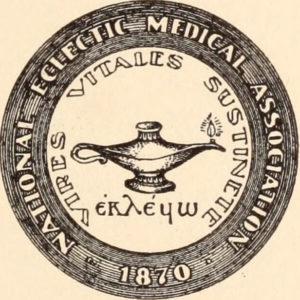
Eclectic doctors focused on bringing the patient back to a state of vital health without extreme or “heroic” forms of medicine. They were adept at using botanical remedies, and drew on generations’ worth of knowledge from European, Asian, African, and Native American sources. Which was a breath of fresh air compared to the overuse of mercury and bloodletting at the time. Did you know that George Washington got sick and the doctors bled out 40% of his blood… and then he died. You can read about it in Green Pharmacy: The History and Evolution of Western Herbal Medicine.
There were thousands of Eclectic doctors, many of whom contributed to their field and helped nurture the modern North American herbalism that we know today. Below are a few of the most influential. It’s worth noting that while the eclectic herbalists gave credit for knowledge learned from women, indigenous and enslaved peoples, their philosophy and practice took shape before slavery was abolished in the US (1865) and before women were generally admitted into professional roles. Hence, the figures highlighted here are all white men.
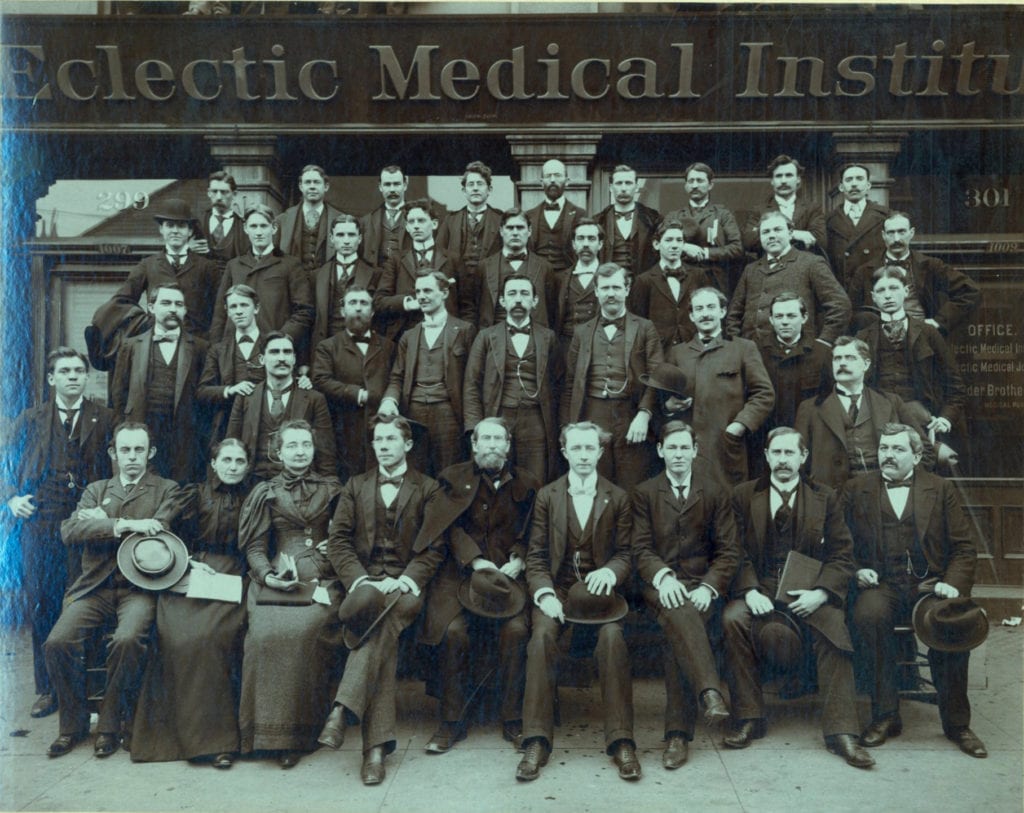
Wooster Beach
Considered the founder of Eclecticism, Beach vocally opposed allopathic treatments of 1700s-1800s, such as bloodletting and using mercury for purging. Beach founded a New-York-City-based clinical school called United States Infirmary in 1827, which evolved into the Reformed Medical College of the City of New York by 1930.
John Uri Lloyd
A chemist and pharmacist with in-depth knowledge of botanical remedies, Lloyd’s published work offers a glimpse into the philosophy of the Eclectic herbalists. Without Lloyd, who helped fund the Lloyd Library and Museum to house Eclectic publications, the “secret” history of herbalism in the US might have been altogether lost. You can still visit his library and museum today.
John Milton Scudder
A successful Eclectic doctor who gave up private practice to lead the Eclectic Medical Institute through the difficult years of the Civil War. Scudder also revived the Eclectic Medical Journal and authored influential books including Eclectic Medical Practice (1864), Specific Medication and Specific Medicines (1869-70), and Specific Diagnosis (1874).
Others of Note
- Thomas Vaughan Morrow: Brought Eclecticism westward, founding the Eclectic Medical Institute in Ohio in 1845.
- B. L. Hill: Author of the first Eclectic textbook, The Eclectic Practice of Surgery (publication date unknown, but before 1850).
- John King: Author of King’s American Dispensatory (first published in 1854), a materia medica explaining the use of herbs. King was also a professor of obstetrics.
- Frederick J. Locke: Taught materia medica at the Eclectic Medical Institute for an estimated 60 years.
- Herod D. Garrison: Scholar, philosopher, and public lecturer, was one of the founders of Bennett Medical College (1868).
- Andrew Jackson Howe: A respected surgeon, professor, and author of Fractures and Dislocations (1870) and Art and Science of Surgery (1876).
- Edwin Freeman: Professor of anatomy for more than 30 years.
- Finley Ellingwood: A Chicago-based obstetrical/gynecological physician and vocal advocate of women in medicine. Ellingwood authored the influential American Materia Medica (1919).
- Harvey Wickes Felter: Recorded important histories of the Eclectic Herbalists in addition to authoring Eclectic Materia Medica (1922) and co-authoring the 3rd revision of King’s American Dispensatory (1898) with John Uri Lloyd.
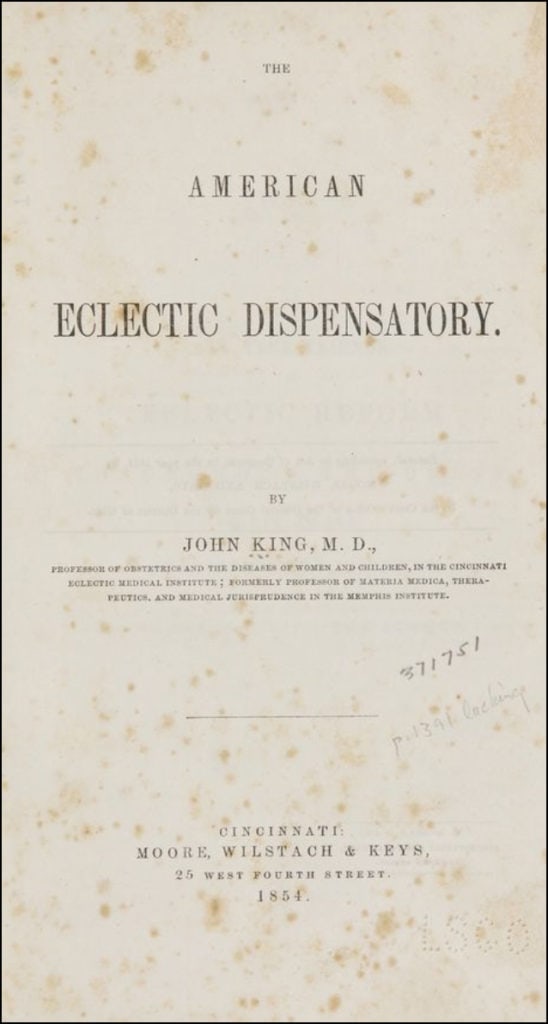
The Eclectic Herbalists’ Legacy: Materia Medica
Many of the Eclectic herbalists listed above – Lloyd, Scudder, King, Ellingwood, Felter – wrote materia medica conveying knowledge about the therapeutic properties of plants used in real-world situations.
If you are studying herbal medicine, take it to the next level and read any one of these materia medica. I always have several Eclectic materia medica books next to my bed and peruse their pages as I drift off to sleep.
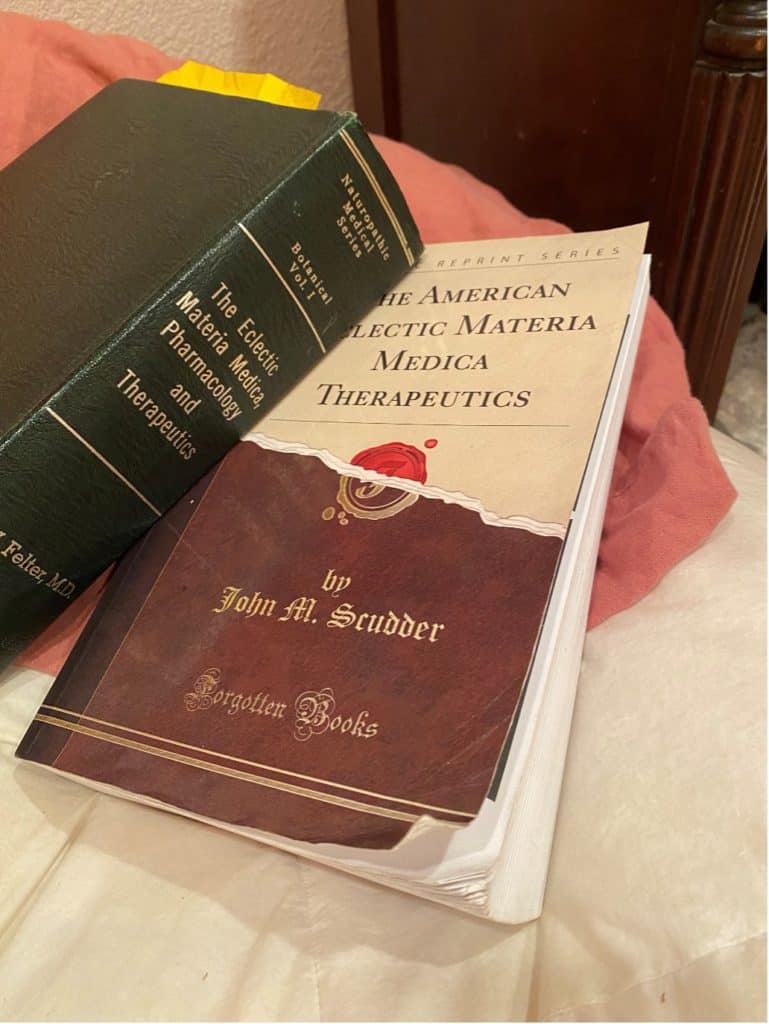
A little light nighttime reading
These texts, widely available in Eclectic schools at the turn of the 20th century, were shipped to the Eclectic Medical College as the schools closed one by one. They might have been lost entirely if not for the Lloyd Library and Museum and the efforts of herbalist Michael Moore, who digitized them after finding many of the books molding in the library’s basement in 1990.
I graduated from Michael’s school in 1991, The Southwest School of Botanical Medicine. He was all about the teachings of the Eclectics and I feel very fortunate to have spent time with Michael, he was a wonderful teacher and helped set the course of my life.
As Michael wrote, “There they all were, holding on by the slimmest thread, the writings of a discipline of medicine that survived for a century, was famous (or infamous) for its vast plant materia medica, treated the patient and NOT the pathology, a sophisticated model of vitalist healing every bit as usable as Traditional Chinese Medicine and Ayurvedic medicine…and molding in front of my eyes.”
It’s frightening how easily these texts and all of this history could have disappeared completely, and how close it came to happening.
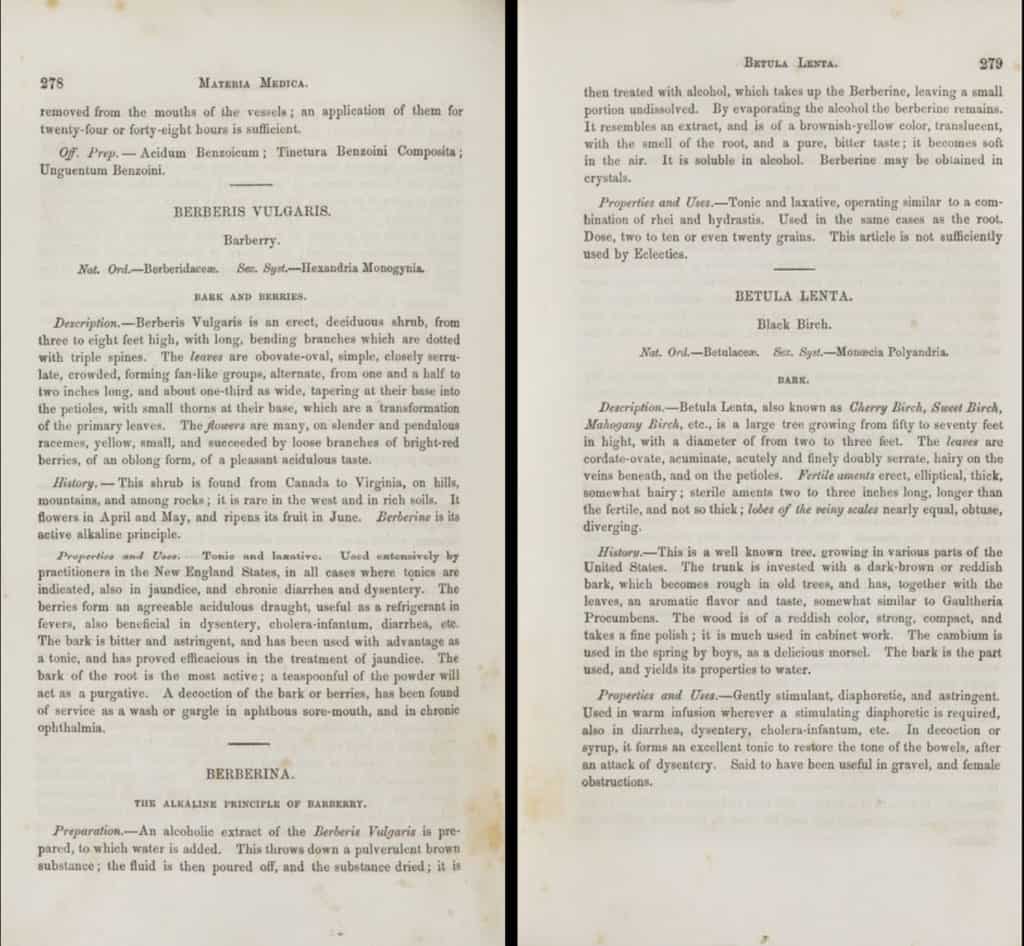
Bringing Medicine Back into Balance
Why don’t we all know more about the Eclectic herbalists? As their schools were systematically shut down in the early 1900s, their knowledge was also swept aside to make way for the pharmaceutical industry – as detailed in this post. Our country’s medical system was reconfigured to skew away from natural, inexpensive approaches to healing, turning instead toward patents and profits.
It didn’t have to happen that way. As we see in places like the UK, it’s possible for trained medical herbalists to practice their profession in parallel to physicians and surgeons, creating a balanced array of options.
When someone you love is challenged with their health, don’t you want them to have access to all healing modalities?
As I’ve said before, we need and deserve a medical model that gives us choices. Drugs and surgery alongside options to use herbs that tap into our innate healing power, strengthening us from within. By empowering ourselves with the truth about the history of our medical system, we can see more clearly where our choices have been limited and start bringing the system back into balance.
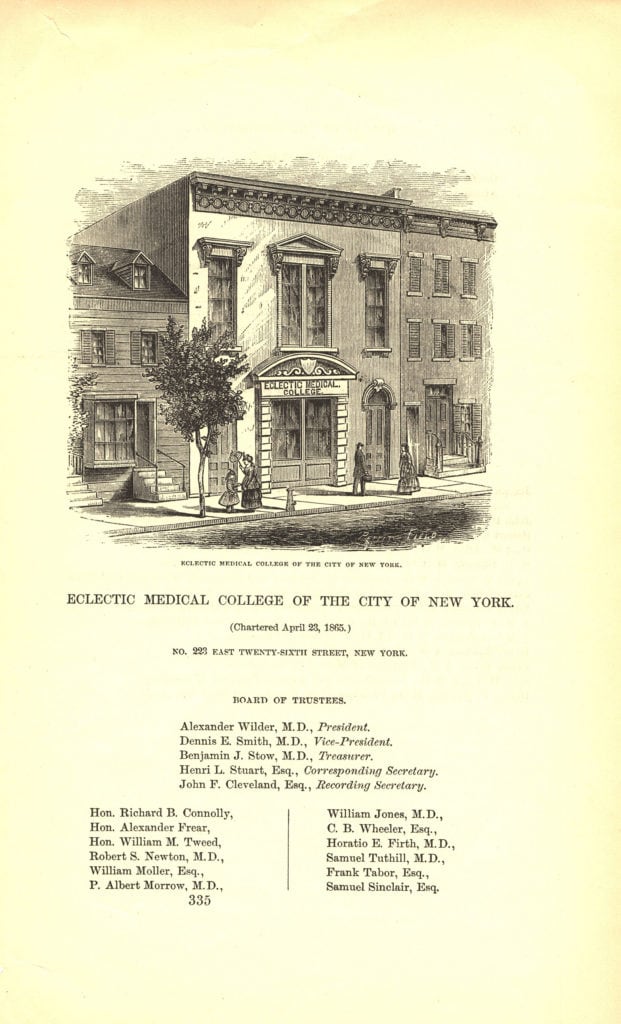
The Rise and Fall of the Eclectic Colleges
Here’s a peek at the history of Eclectic herbalism in the US. Unless otherwise noted, this timeline is based on the account of Harvey Wickes Felter.
- 1827: Dr. Wooster Beach founds United States Infirmary, which in 1830 becomes the Reformed Medical College of the City of New York.
- 1830s: One of Beach’s students, Dr. John J. Steele, founds the Reformed Medical College of Ohio.
- 1839: The American School of Medicine (Eclectic) in Cincinnati opens.
- 1842-3: The Reformed Medical School of Cincinnati is officially incorporated as the Eclectic Medical Institute in 1845.
- 1857: The American School of Medicine (Eclectic) merges with the Eclectic Medical Institute.
- 1868: Bennett Medical College, a Chicago-based Eclectic medical school, opens and begins enrolling women on equal terms with men.
- 1880s-1890s: Peak of the Eclectic movement.
- 1910: Eclectic Medical Institute becomes the Eclectic Medical College.
- 1910: The Flexner Report is published. Eclectic schools were not favored by the pharmaceutical-leaning standards of the report. This signals the beginning of the end for the Eclectic schools and many other medical colleges in North America, as states adopt requirements laid out in the Flexner Report.
- 1934: Eclectic Medical Association President J. C. Hubbard declares, “We must choose between being absorbed by the dominant section, our professional activities dictated and controlled, our policies subject to the approval of an unfriendly, prejudiced, self-constituted authority, and soon lose our identity as the Eclectic Section of American Medicine, or adapt ourselves to the general social change and retain the old Eclectic values of individual freedom of thought and action, independence in practice and the right to use that which has stood the test of experience in our service to mankind.”
- 1939: The last remaining Eclectic school, the Eclectic Medical College, closes in Cincinnati.
“By empowering ourselves with the truth about the history of our medical system, we can see more clearly where our choices have been limited and start bringing the system back into balance.”
Remember, the Eclectic doctors practiced before there were antibiotics and at a time when most people did not have access to hospitals. The books are full of their first-hand experience of how they treated people. Their writings are absolutely invaluable.
There is SO much we can do to take care of ourselves. There is so much to learn and natural and non-invasive medicine deserves its place at the table.
Enough of having our medicine dictated by the greed of the pharmaceutical lobby. We have a ball and chain dragging us down in our ability to have integrative care. Knowing more of our history helps us shape the future in a better way that serves true health care. Not just health care driven by wealth.
How different would our health care be if the Eclectic doctors could have continued to develop alongside the MD’s?
What are your thoughts? Are you surprised that the herbal wisdom of thousands of doctors could be nearly forgotten in just a few decades? Do you think you will delve into any of the Eclectic materia medica? Share your insights and reactions in the comments!


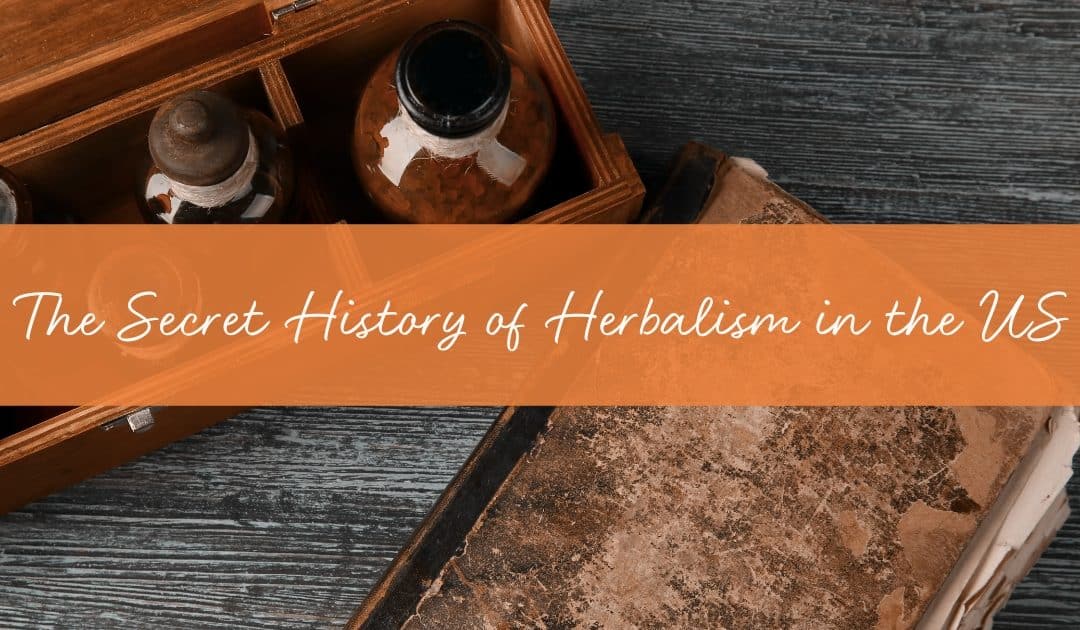
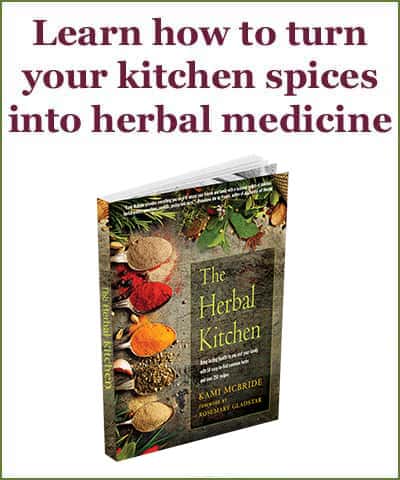


Thank you, Kami. It’s important to know our roots. I just finished reading The Frozen River by Ariel Lawhon. It’s a novel inspired by the life of Martha Ballard, an 18th century midwife living in Maine. Lawhon uses Ballard’s diary to tell a rich story of life and struggle in the late 1700s.
Thank you for bringing this rare information to light. I had never heard of this discipline before this article. Kudos to you!
Kami~
TY for ALL you do!
The history of True medicine is desperately needed!
When able to talk to those that have lived a very long time, they will confirm that herbs, essential oils, tinctures, were the norm.
Even in Bible days, herbs & oils were so common place & known for health!
I send your info to those searching for any wisdom on herbs & oils to you.
Please keep up informing, teaching & living by example on herbs & oils🌱🌿🪴🍇🌾🍎🥕🍉🍊🌻🌹🌺😊
And, guess who was behind taking the Eclectics out? None other than J.D. Rockfeller. Surprise surprise…..
I talk about that more in depth in this post:
https://kamimcbride.com/the-flexner-report/
So good to have accurate knowledge of this. So empowering to know the true background and facts to confirm what you have believed to be true! Thanks, Kami.
We really do need to undestand the history that contributes to why we are in such a mess with our medical system.
Thank you, Kami, for this information. I am a root woman, descendent of Ethiopian, Caribbean and Spanish men and women who use roots for medicine to heal many ailments for many generations. But I do not have much experience with American herbs. This information is vital to our knowledge, and I am so grateful to you for sharing these links.
What an interesting and detailed post, thank you!
This is fascinating, Kami. I wasn’t familiar with the “eclectics,” or the term. Much new food for thought. Thank you!
I had not read much about the Eclectics, but have read some history about Naturopathic history which have a very similar history. It is so sad to loose so much! There is so much plant based health care has to offer that can change peoples lives. I would love to check some of the old book out and learn!